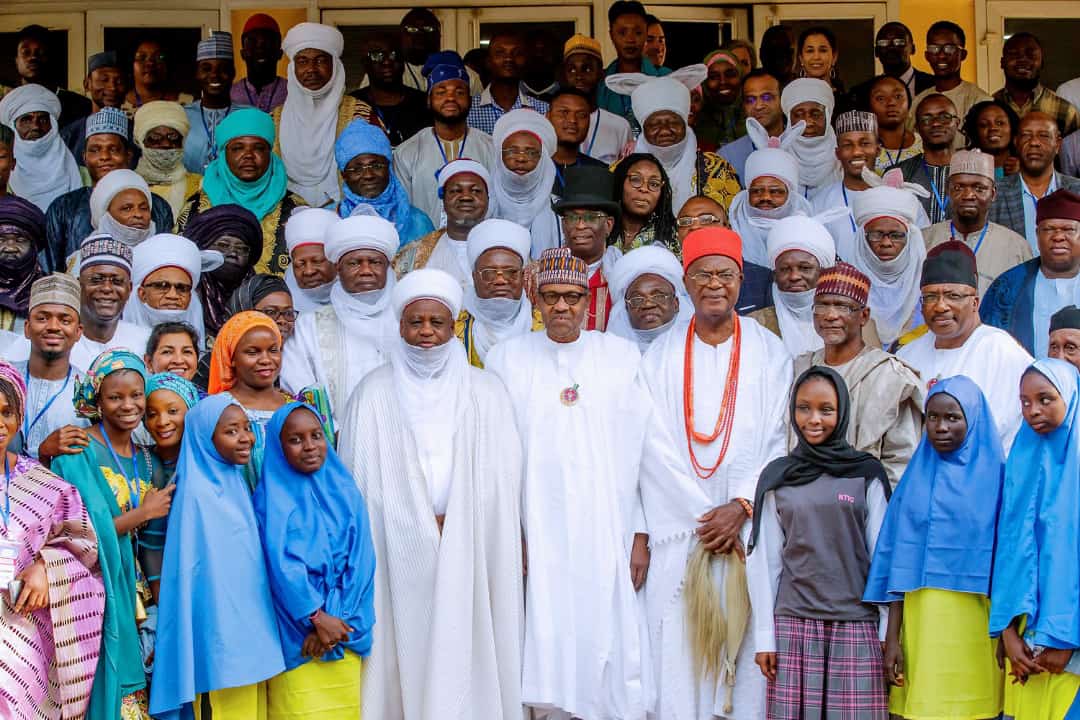The Regional Conference for African Traditional and Religious Leaders for Keeping Girls in School in Africa
For decades, African governments and international development partners have been trying to improve the health of women and children and reduce suffering resulting from pregnancy and/or childbirth. While improvements have been recorded, the rate is abysmally low and not near those of regions on the globe.
Studies have shown that the health of children substantially improves when the mother is educated. Completion of secondary education by girls has been found to significantly improve the health and Nutrition of children, improve women’s decision-making, as well as the ability to earn a living, thereby improving the health and nutrition of families and communities. This direct correlation between the education of the mother and the health and development outcomes of families shows that the future of African families is dependent on the education of the girl child.
As custodians of values in Africa, it is important that African Traditional and Religious Leaders take the lead in ensuring that our people are not left behind by addressing the root cause of the problems – that girls in Africa not only enrol but complete secondary education and livelihood skills. Their involvement and guidance to their people in this respect will provide the necessary legitimacy that is necessary for improvement in Maternal and Child Health as well as in the general livelihood of African families.
This Initiative will also bring together the voices of African female leaders that exemplify the importance of keeping girls in school and get them to support the movement across the Continent: African Female Voices will not only use their influence to promote keeping African girls in school but will also serve as mentors and role models that will inspire communities to do whatever it takes to ensure all girls on the Continent complete at least twelve years of foundational education – so as to ensure they have basic life and livelihood skills.
It is against this backdrop that the Sultan of Sokoto brought African Traditional and Religious Leaders together for a two- day conference which commenced on the 13th of January 2019 to discuss this important issue and find solutions from within the rich and diverse cultures and values of African people. The objective of this conference was to bring together influential Traditional and Religious Leaders from across Africa to discuss the importance of keeping girls in school to complete 12 years of education as well as acquiring livelihood skills. The conference also provided an opportunity for the leaders to share ideas and best practices, articulate and develop strategies, and create networks that they will use to promote keeping girls in school. This included how to motivate parents and caregivers to be deeply committed to ensuring all girls in their constituencies remain and complete at least twelve years of education.
The event was attended by several international organisations including UNFPA, UNESCO, DfID, CIFF, Dangote Foundation, etc. and representatives of countries including Botswana, Zambia, Ghana, Liberia, Chad, Sudan, Zimbabwe, Cameroun, Central African Republic, Comoros, Ethiopia, Kenya, Tanzania, Uganda and South Sudan.
The President of the Federal Republic of Nigeria, Muhammadu Buhari made opening remarks and also promised his full support for the initiative. He pointed out that educating the girl-child is like educating the entire family. Royal dignitaries in attendance also included Sarkin Kano, Emir of Songhai, Obi of Onitsha, Gbom Gwon Jos, Paramount Chief from South Sudan and many more.
“Educating the girl is like educating the entire family, and this is in the best interest of the Africa we want, come 2063.”
The conference gave an opportunity for each Traditional and Religious Leader to reflect and come up with ideas on how he/she would contribute to the movement of keeping girls in school in their communities by increasing enrolment, retention and completion of school as well as ensuring girls acquire life and livelihood skills.
At the end of the two-day conference, Africa’s Traditional and Religious Leaders took lead positions as advocates for keeping girls in school in Africa and now see themselves as champions and the group responsible for the success of the agenda for their communities and the continent.
There was also an overall conclusion that the initiative is to be further carried out in each country/community for the overall development of the African Continent; it was well understood that keeping girls in school allows for a healthier next generation and most importantly allows for an educated next generation.
The conference brought an in-depth understanding of the need to include Traditional and Religious leaders in this initiative given their role as gatekeepers of their communities so as to ensure that their communities and people understand the benefits of education.
Since 2011, October 11th every year has been designated as the International Day of the Girl Child. It is a day set aside by the United Nations for promoting the rights of girls and addressing the unique challenges they face. It’s a day when diverse groups come together under the same goal to highlight, discuss and act to advance rights and opportunities for girls globally. The day promotes girls’ human rights, highlights gender inequalities that remain between girls and boys and addresses the various forms of discrimination and abuse suffered by girls around the world. From 2012, various themes have been developed to guide the celebration. The themes support the engagement of education sector partners working with girls to amplify their voices and stand up for their rights.

